Items
Tag is exactly
economy
-
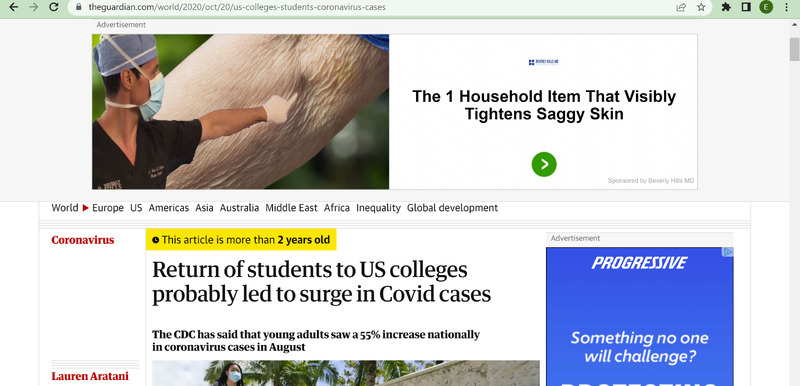 2020-10-20
2020-10-20How covid affected NYC?
Covid has affected everyone by the way you live your everyday life. Covid has affected New york city in many different ways , For example covid affected business to close down months including schools . Schools having to go remote . Another way New york city has been affected by the transit , The transit systems like the trains ,buses and commuter rail and ferries as a result to this the transportation has plummeted . For the subways in New York City it went down 90 percent and the buses went down 75 percent. The reason for this happening is people in quarantine and not going to work since some are working from home . Covid has affected health care workers. For example health care workers like doctors and nurses are around people who have it so they are more prone to get it. .This pandemic caused a lot of changes in the world. It caused everyone to be less social and not go out as much as it caused us to wear masks everywhere. It also caused a lot of people mental and emotional health to go down. For example there’s been a lot of social isolation which caused families to not be able to see each other as often. COVID-19 has impacted social mobility on child care cost and for families school dropout rate has increased due to fear of getting Covid. COVID-19 especially affected families due to not having jobs or working from home or being put on unemployment there’s been a big impact of Covid on families and family relationships creating a lot of tension and feeling depressed or not being united together. These pandemic parts of the population in different situations continue to affect people living in poverty situations with older people and disabilities. A lot of people have been put on unemployment and not being able to pay the rent. Covid has caused a lot of deaths and people could not be able to bury their loved ones. During The beginning of the year when the Pandemic was occurring depending on the situation of others some people were probably affected mentally Health care was provided to those who really needed it due to people not being able to pay for it and The state of new york lost money as well , It affected relationships and people got help by going therapy and staying connected to people . This pandemic affected many people personally. Covid has affected everyone's plan including travel because there's been travel bans and going to the airport has a lot of restrictions. A Lot of businesses are closing down to this pandemic by not giving income . Due to health care a lot of pregnant women had very high dress levels that affected their pregnancy . Which caused health care workers to be very aware of what was going on . Their risking their own lives to help us and young teens and kids were not able to fully able to enjoy the success of completing in graduating either high school such as prom or etc.it affected everyone's life and still is . This has caused a lot of stress and tension but has allowed people to be stronger in a sense and to appreciate the little things in life . Covid 19 has caused many hardships including loss of jobs . Some questions that still remain on this subject would be , When are things going back to normal ?, When is the vaccine coming out to prevent this ? When will this end ?. A message of hope i would say is everything will get better with time. The productivity has been slow due to employment going down ,People losing jobs . my personal experience with covid has become a learning experience . For example this pandemic has showed me to not take things for granted . -
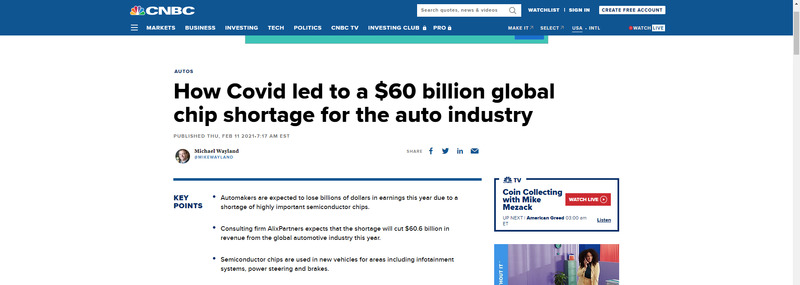 2021-02-11
2021-02-11How COVID led to a $60 billion global chip shortage for the auto industry
Article goes over the auto industry being affected by the pandemic. These kind of levels of economic interconnectivity really were exposed during the pandemic. -
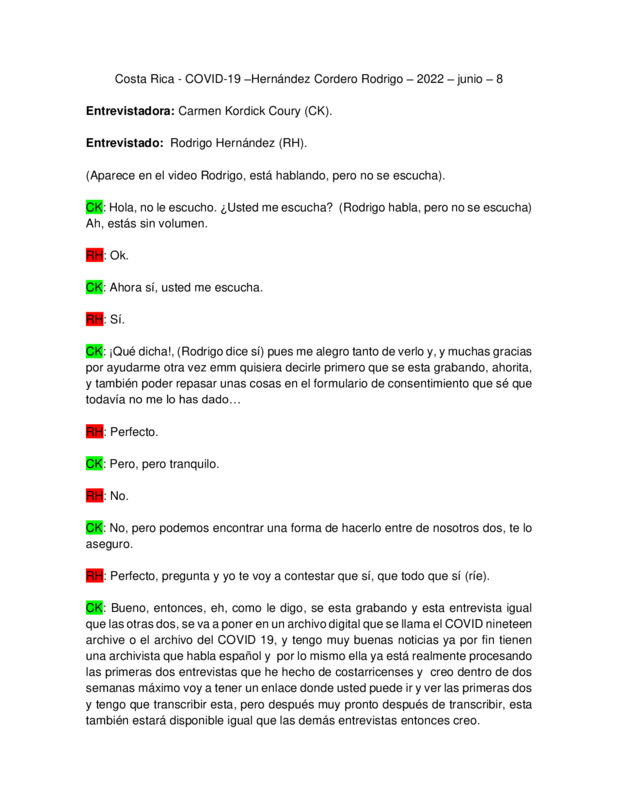 06/08/2022
06/08/2022Rodrigo Hernández Cordero Oral History, 2022/06/08
En esta entrevista Rodrigo Hernández Cordero es entrevistada por Carmen Kordick Coury concerniente al covid-19 en Costa Rica. Para empezar, hablaron de cosas que han cambiado desde el ano anterior. Hablaron de su negocio, inflación, y el gobierno. De allí hablaron del gobierno, la vacuna, y la mascarilla. Hablaron de La Caja, su vida social, y su familia. De las elecciones, fuentes principales de noticias y estudios cerebrales. Para terminar, hablaron de la juventud y de sus pensamientos del futuro. -
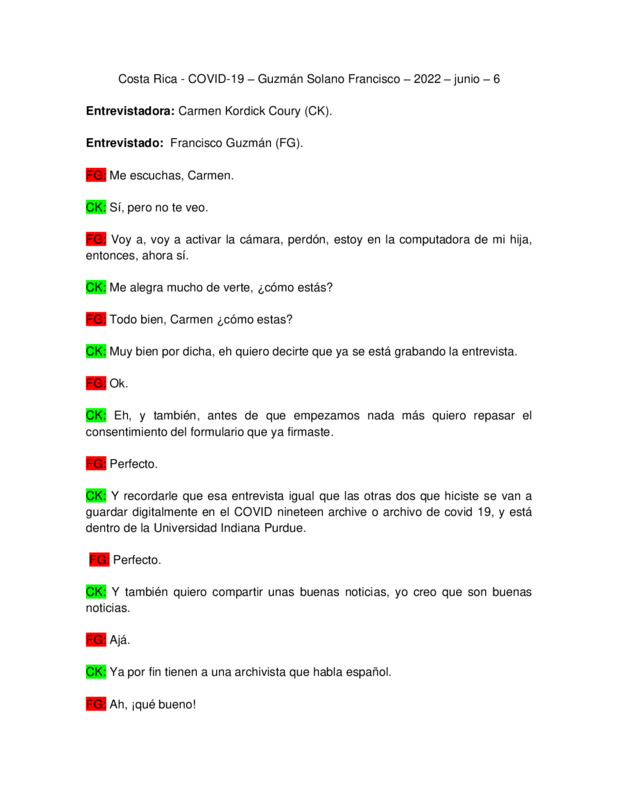 06/06/2022
06/06/2022Francisco Guzman Solano Oral History, 2022/06/06
En esta entrevista Francisco Guzman Solano es entrevistada por Carmen Kordick Coury concerniente al covid-19 en Costa Rica. Empiezan con los cambios que había pasado desde el ano anterior. Francisco habla de su familia y vida social. Hablan del uso de las máscaras, vacunas y la información falsa. De allí, hablan de la economía y la inflación, del gobierno y las elecciones. Hablan del crimen y las drogas. Para terminar, hablan de las fuentes principales de noticias y el futuro. -
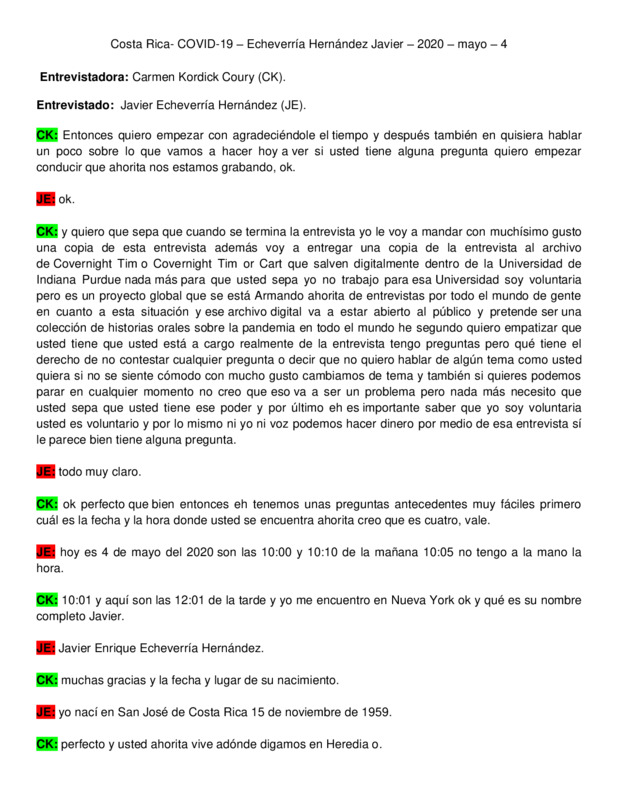 05/04/2020
05/04/2020Javier Echeverria Hernández Oral History, 2020/05/04
En esta entrevista Javier Hernández Echeverria es entrevistado por Carmen Kordick Coury concerniente al covid-19 en Costa Rica. Para empezar, hablan de la primera ves que Javier se dio cuenta de la pandemia, de cómo se sintió y sus preocupaciones. Habla de su hogar y las formas en que su vida ha cambiado, también habla de su trabajo de ingeniero agrónomo. De allí, hablan de la economía, de su familia y comunidad. Hablan del gobierno, cambios en su barrio y el uso de las mascarillas. También hablan de gente conocida que se han enfermado, gente que aun viajan y las fronteras cerradas. Para terminar, hablan de las fuentes principales desinformación, corrupción del gobierno y cambios en como ve su familia sus amigos y su comunidad. -
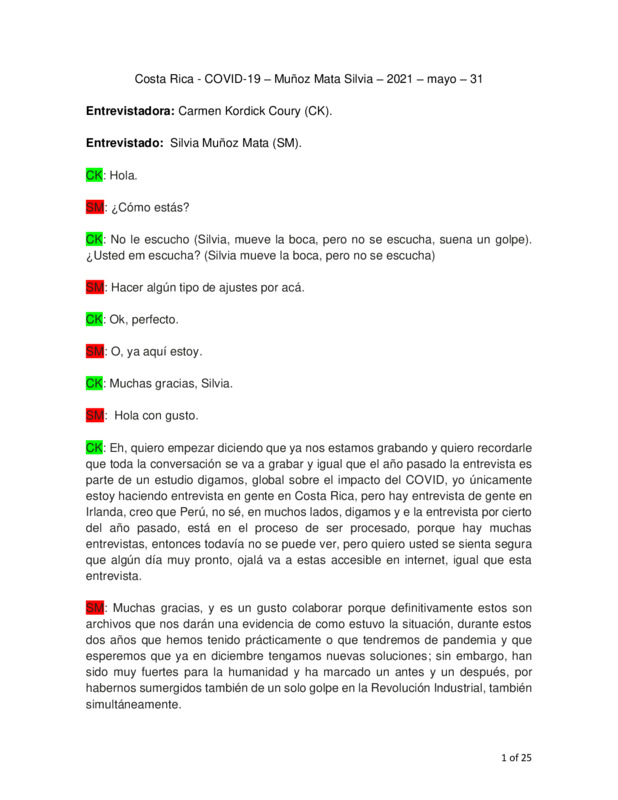 05/31/2021
05/31/2021Silvia Muñoz Mata Oral History, 2021/05/31
En esta entrevista Silvia Muñoz Mata es entrevistada por Carmen Kordick Coury concerniente al covid-19 en Costa Rica. Empiezan hablando de los cambios que habían ocurrido desde el ano anterior. Hablan del trabajo y el trabajo virtual. De la violencia domestica y otros problemas que existen en la sociedad. De allí hablan del crimen, violencia y las divisiones económicas que existen alrededor de ella. Hablan de las vacunas, gente conocida que no se quiere vacunarse y las teorías conspiratorias que existen sobre las vacunas. De allí hablan del gobierno, familia y salud física y mental. Para terminar hablan de narcotraficantes y del futuro. -
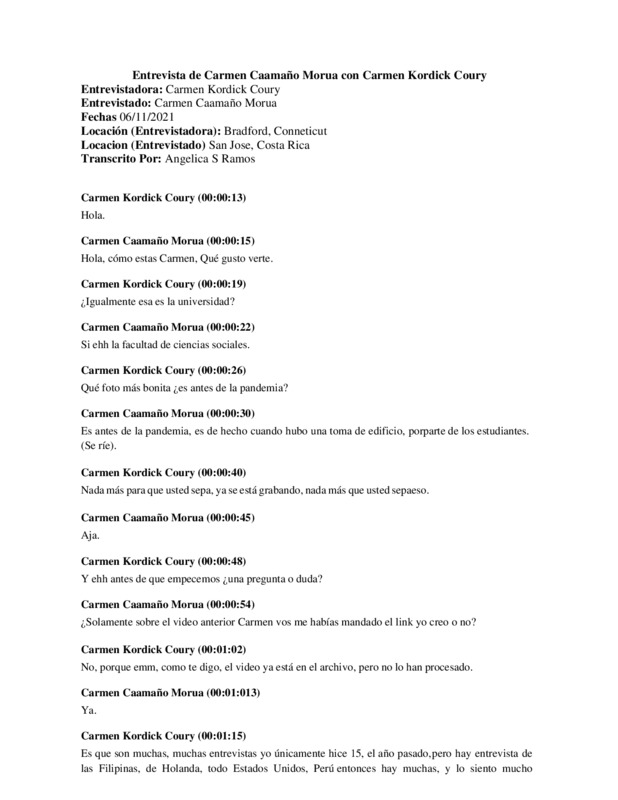 06/11/2021
06/11/2021Carmen Caamaño Morua Oral History, 2021/06/11
En esta entrevista Carmen Caamaño Morua es entrevistado por Carmen Kordick Coury concerniente al covid-19 en Costa Rica. Carmen es profesora en la Universidad de Costa Rica y vive en San José. Habla de su trabajo virtual en la universidad, del crisis de la salud mental y de la gente que cree en las teorías de la conspiración. Carmen habla de la relación entra las ciencias y la religión y como eso afecta los sentimientos hacia la vacuna. Habla de la xenofobia, el racismo y el clasismo. También habla de las vacunas y la respuesta del gobierno. Para terminar, Carmen habla del gobierno, la economía y las noticias. -
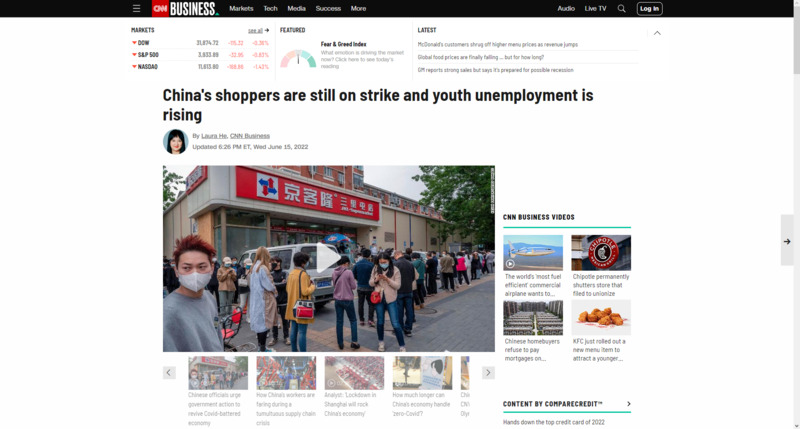 2022-06-15
2022-06-15China’s shoppers are still on strike and youth unemployment is rising
This is a news story from CNN by Laura He. This article is on the economic impact of China's zero COVID policy. Retail sales fell 6.7% in May according to China's National Bureau of Statistics. It is slightly lower than the 11. 1% drop in sales from April. Customer spending has fallen in about every category except for food, drink, and petroleum. Youth unemployment is rising in China, as places that would hire young workers were forced to shutdown with lockdowns. The youth unemployment rate rose 18.4% between the 16-24 range in China. -
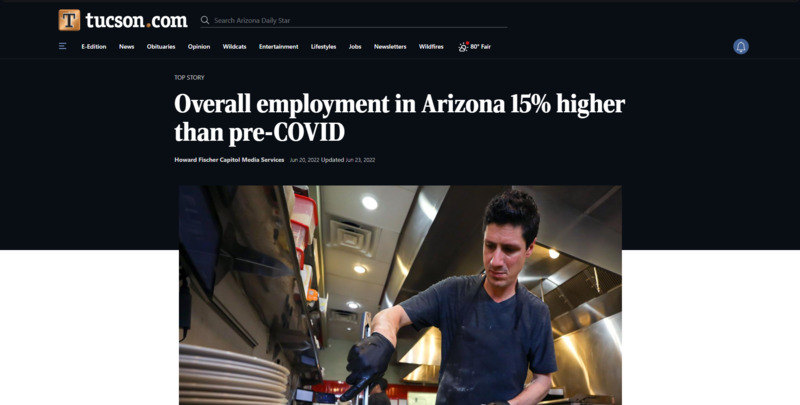 2022-06-16
2022-06-16Overall employment in Arizona 15% higher than pre-COVID
This is a news story from Tuscon.com. Overall, employment has risen by 15% compared to pre-COVID numbers. Bars, restaurants, and hotels have increased employment by 10.6% since last year. Permits issued for single and multi-family homes are down by about 16% compared to last year. There is also a 32.6% price increase on energy prices, being driven by rising gasoline prices. Overall, this article shows economic trends in Arizona and how COVID has impacted various industries and consumer trends. -
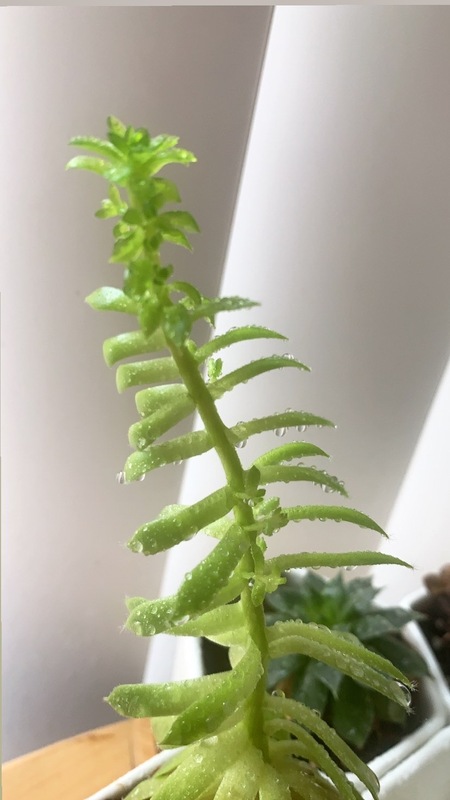 2020-03-18
2020-03-18All Things Will Pass
On this day, I recall watering my succulent and staring out the window with grave uncertainty of what was to come and utter confusion as to what exactly was happening. The stock market had just crashed andante pumped back up within minutes and the news was flooded with death and infection rates rising as people began clamoring for grocery stores to hoard supplies. The past two years living through COVID has felt somewhat like the process of the Calvin Cycle that kept my succulent in this photo nice and healthy. Although it is nearly impossible to articulate what life has been like or what was observed over the last two years, one great lesson I gained is the understanding that nothing is forever. It is all temporary. As I watered my plant with sheer emptiness and mentally checked-out due to the shock of the situation at the time, I began thinking about the Calvin Cycle process that my succulent or any plants outside would go through as my species was in dire panic. The world seemed to have stopped and sped up over night, but life itself remained to be what it was. Then the thought occurred to me. All things will pass. Living through COVID the last two years has seen work-from-home jobs rise to masses. I left one job to work at another and found that this was the worst comfort and behavior our species grew to become adapted to. For once, it has made us disconnected from reality and from each other. By being disconnected, it creates an issue of empathy and connection. The mantra of "connected while away," was shared everywhere when COVID first came about, but two years later, this has become the opposite. An example of this was observing many downplay the deaths of people from the virus, yet become very emotional once it was one of their family members. This could be viewed under a quick search on Google for the Reddit page of "Herman Cain Award." Bringing this page up primarily serves to show that both sides of the COVID discourse became contradictory as both sides were insensitive toward death. Was it due to being separated? I'll allow you to consider this. Another interesting point observed during COVID was the rise of irrational spending and mass speculation. Alan Greenspan once called the mass speculation a product of "Irrational Exuberance." The premise of this best serves that of investing as it describes the investor enthusiasm which drives asset prices higher than they are worth. However, the same could be viewed through the grocery hoarding of toilet paper or food where people became highly speculative of how long thee lockdowns would be. This was also indicative of the housing bubble 2.0 in which the Federal Reserve opened massive quantitative easing and opened cheap lines of credit for many. The result created more greed as people began hoarding one of the basic needs of our species in housing. How can a species feel righteous commoditizing shelter? The answer is irrational exuberance. Unfortunately, the result of the quantitative easing has created a massive issue where as the time I type this, the 1Q GDP results of the United States is at -1.4% and the inflation rate is at 8.5%. The Irrational Exuberance may be spelling the end of this decade's journey of cheap credit as it appears we are now headed for another Recession the next quarter. However, despite all of this irrational exuberance and the great stress these past two years have brought, I can no longer complain. I have adopted and accepted the Stoic philosophical belief that we must care for our neighbors as this will all pass. History has proven to be very biased when thinking in retrospect, but I hope my current peers use this to improve the future. ....... also, I never mentioned the protests, presidential change, food shortages in Sri Lanka and Peru, or how we have a dollar shortage crisis that nobody is talking about. All things will pass. -
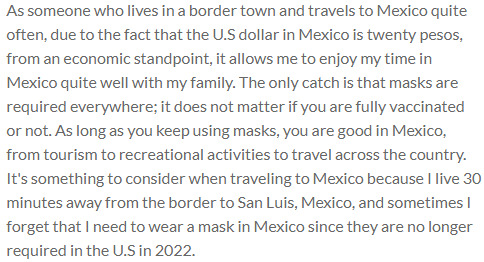 2022-04-05
2022-04-05Masks are still required in Mexico
As someone who lives in a border town and travels to Mexico quite often, due to the fact that the U.S dollar in Mexico is twenty pesos, from an economic standpoint, it allows me to enjoy my time in Mexico quite well with my family. The only catch is that masks are required everywhere; it does not matter if you are fully vaccinated or not. As long as you keep using masks, you are good in Mexico, from tourism to recreational activities to travel across the country. It's something to consider when traveling to Mexico because I live 30 minutes away from the border to San Luis, Mexico, and sometimes I forget that I need to wear a mask in Mexico since they are no longer required in the U.S in 2022. -
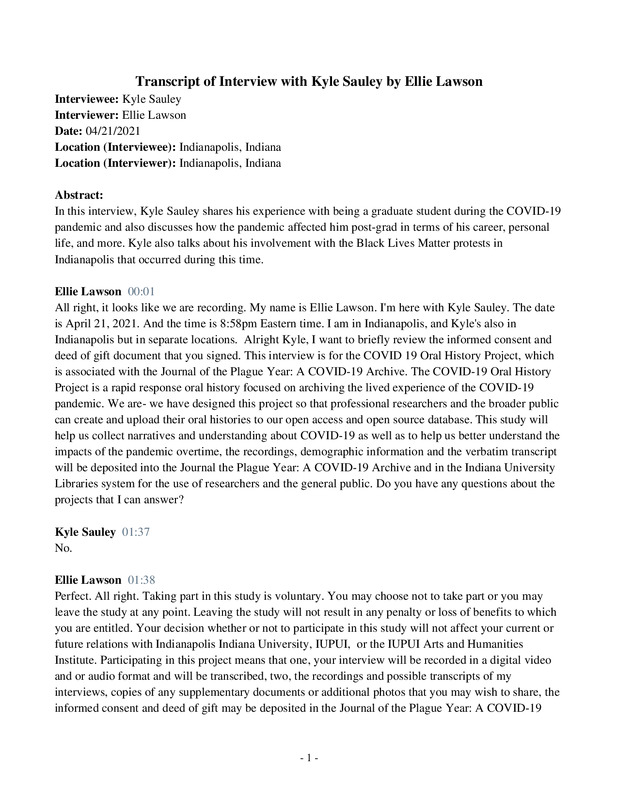 05/03/2021
05/03/2021Kyle Sauley Oral History, 2021/05/03
-
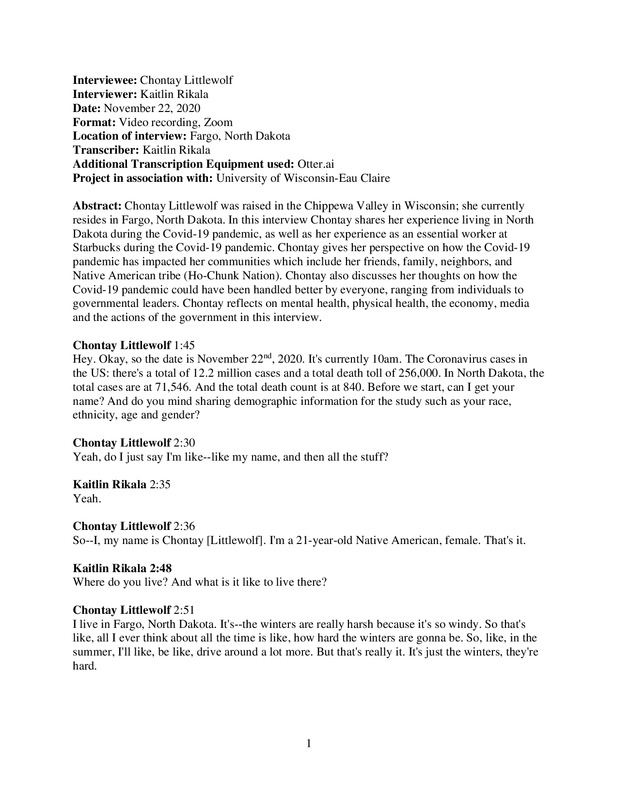 12/09/2020
12/09/2020Chontay Littlewolf Oral History, 2020/11/22
Chontay Littlewolf was raised in the Chippewa Valley in Wisconsin; she currently resides in Fargo, North Dakota. In this interview Chontay shares her experience living in North Dakota during the Covid-19 pandemic, as well as her experience as an essential worker at Starbucks during the Covid-19 pandemic. Chontay gives her perspective on how the Covid-19 pandemic has impacted her communities which include her friends, family, neighbors, and Native American tribe (Ho-Chunk Nation). Chontay also discusses her thoughts on how the Covid-19 pandemic could have been handled better by everyone, ranging from individuals to governmental leaders. Chontay reflects on mental health, physical health, the economy, media and the actions of the government in this interview. -
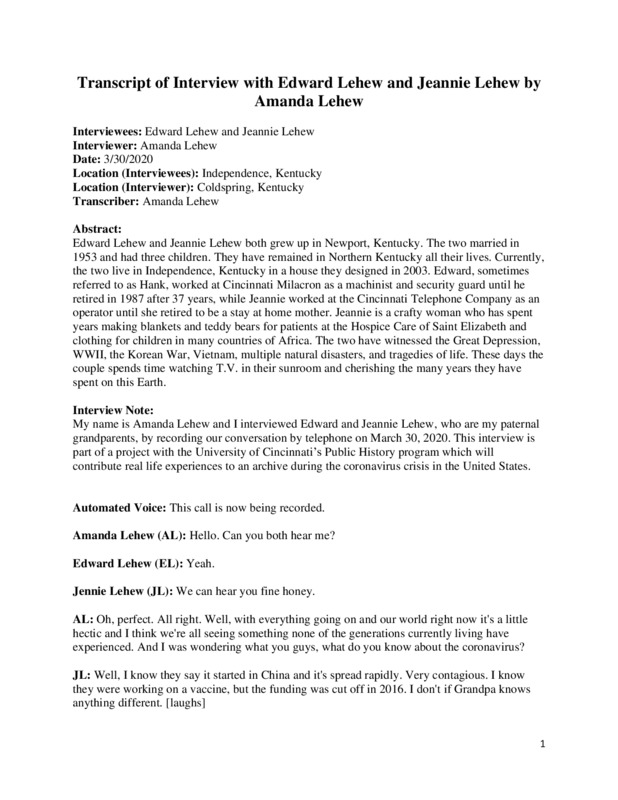 03/30/2020
03/30/2020Jeanie and Edward Lehew Oral History, 2020/03/30
This is interview from Edward and Jeannie Lehew focuses on the COVID-19 pandemic experience in the United States. The Lehews, both born in the 1930s, provide an enriching interview connecting the current pandemic to past historical and personal events ranging from the Great Depression to the loss of an infant grandchild. The Lehews detail many personal life experiences and offer their opinions on the current political and healthcare issues in the United States by explaining how the current presidential administration is at fault for the lack of medical supplies in America. -
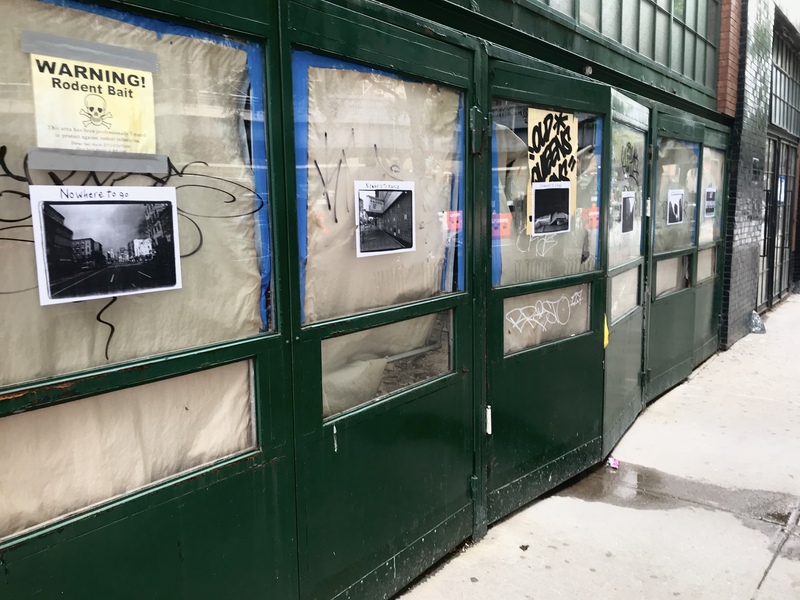 2020-06
2020-06Shuttered storefront in Chelsea, June 2020
A shuttered storefront in the predominant art gallery section of Chelsea that has paper signs some which say, "Nowhere to Go", "Nothing to see". During this time, the stores in the Chelsea area were closed - either temporarily or indefinitely. Simultaneously, many were boarded up in fear of looting or protest which added to the eerie apocalyptic atmosphere. -
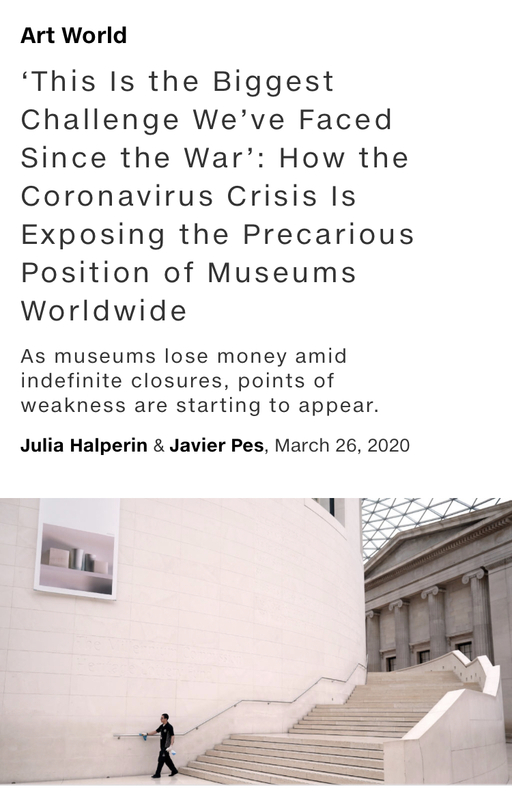 2020-03-26
2020-03-26‘This Is the Biggest Challenge We’ve Faced Since the War’: How the Coronavirus Crisis Is Exposing the Precarious Position of Museums Worldwide
The article discusses the financial hit to museums caused by the pandemic and fear and anxiety over how long museums can sustain amid a global shutdown. Whereas federal aid has come to the rescue of some museums provided by select countries for example, Germany and Britain; however, the United States does not have the same relief plans in place for cultural institutions. The pandemic has revealed weaknesses in the current museum model in relation to funding and what the article describes as a “winners take all mentality”. These problems have been compounding for decades but is the pandemic the straw that breaks the camel’s back? What might a new museum model look like if the old one is no longer sustainable? -
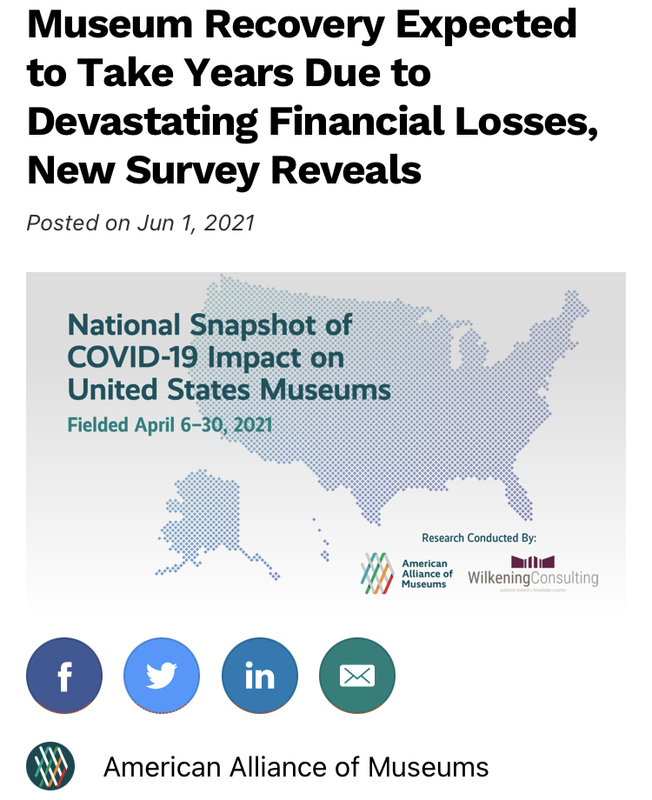 2021-06-01
2021-06-01Museum Recovery Expected to Take Years Due to Devastating Financial Losses, New Survey Reveals
The American Alliance of Museums report highlights financial problems and some of the more negative long-term impacts resulting from COVID-19 such as reduced overall net revenue for the institution, lower employment numbers, and lower average salary for their staff members. -
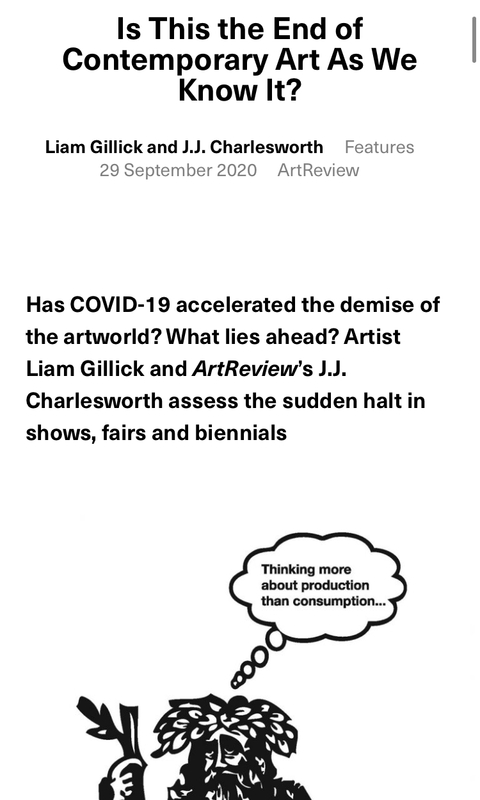 2020-09-29
2020-09-29Is This the End of Contemporary Art As We Know It?
Artist Liam Gillick and a writer for ArtReview, J.J. Charlesworth talk about the changes brought by the pandemic and the many ways that everything will most likely remain the same. Interestingly, they examine the beginning and end of “contemporary art” and the complex web of economic, social, political and cultural factors that are shifting and breaking down in different ways from our current crises. In the end, the feeling that art will survive but the idea that this particular period of art and the art world has reached its end is contemplated. -
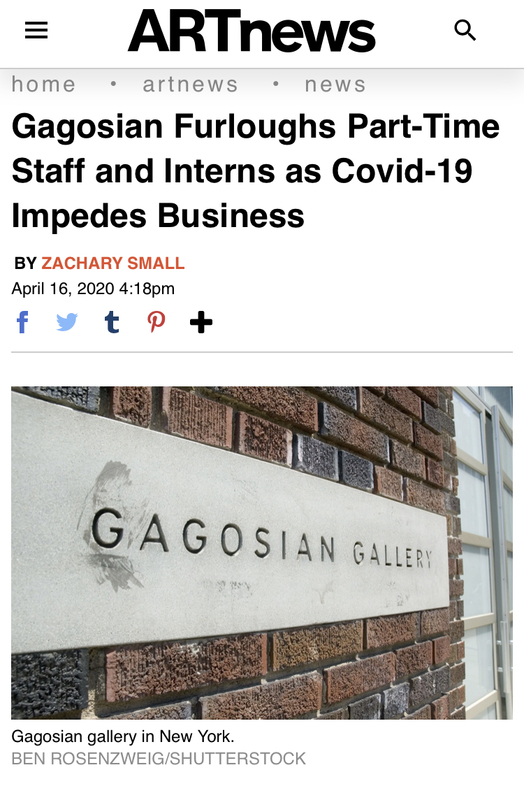 2020-04-16
2020-04-16Gagosian Furloughs Part-Time Staff and Interns as Covid-19 Impedes Business
All galleries felt the immense economic pressure of shuttering their doors. There was uncertainty and furloughs or imminent possibility of losing ones job was a looming presence especially in the spring of 2020. Even international blue-chip galleries like Gagosian were financially struggling. Those that lost their jobs were The article discussed job loss - whose jobs - and what this means for the art world in the present and in the future. Other methods of main tenting financially during the pandemic included furloughs and salary cuts where the percentage was determined by how much someone made per year. -
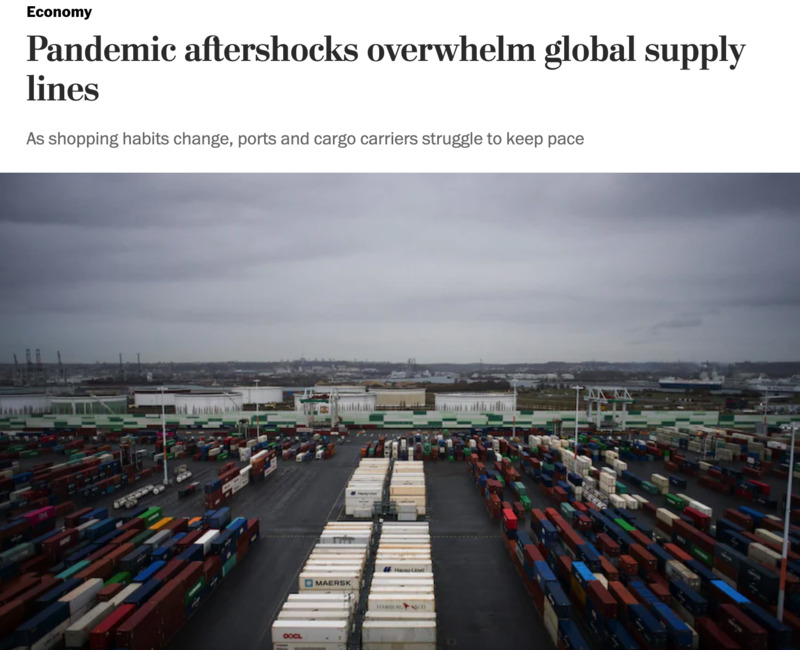 2021-01-24
2021-01-24Pandemic aftershocks overwhelm global supply lines
The Washington Post article discusses the disruptions in the supply chain and the repercussions such as inflated prices, failure to meet schedules, and effects on different industries. The domino effect was set off by the pandemic but we continue to see the fallout. Shipping artwork is a cost that galleries, advisories, collectors, and museums have to factor into their finances. Inflation in the cost of international shipping in particular and unpredictable delays negative effect openings and coordinating with clients and vendors. -
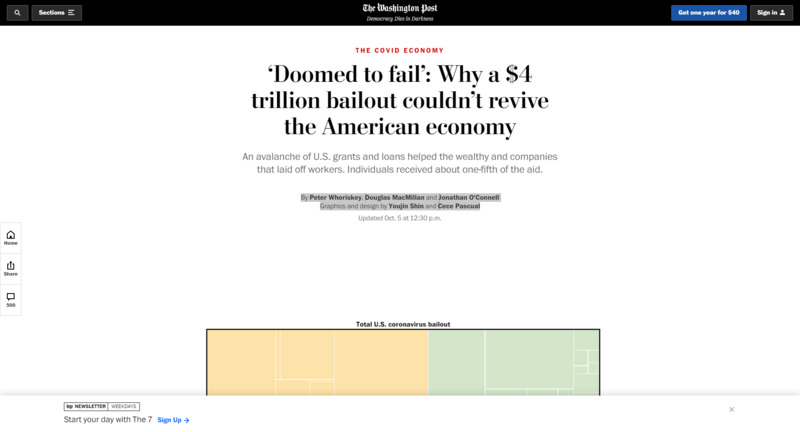 2020-10-05
2020-10-05Who Received Pandemic Money?
This article shows how the economic bailouts of the pandemic helped large corporations much more than they helped impacted individuals. Since the beginning, we've seemingly been supporting and encouraging essential workers. The support can be identified as fraudulent because according to the Washington Post, big companies that employ essential workers didn't use their bailout funds to support their workers. Billions of dollars went out but aid is still running low where it matters the most, with hardworking citizens. -
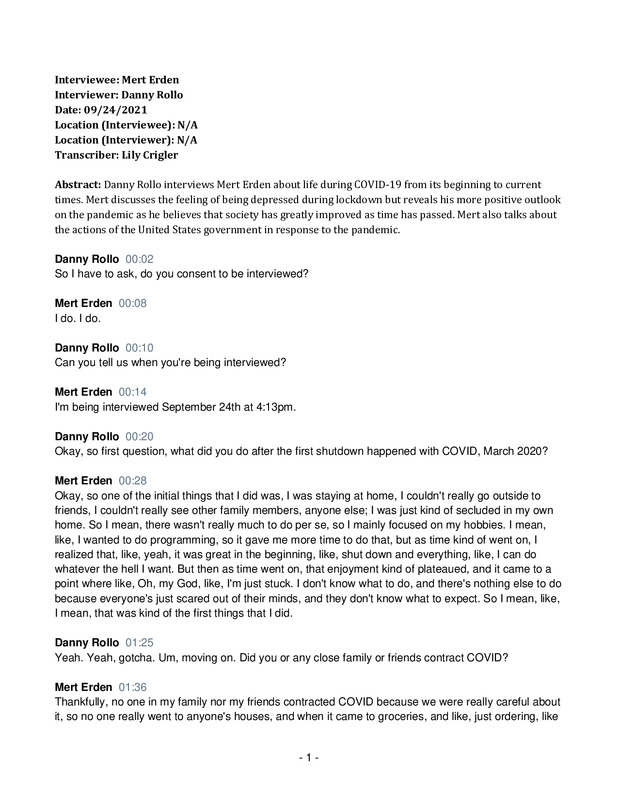 2021-09-24
2021-09-24Mert Erden Oral History, 2021/09/24
Danny Rollo interviews Mert Erden about life during COVID-19 from its beginning to current times. Mert discusses the feeling of being depressed during lockdown but reveals his more positive outlook on the pandemic as he believes that society has greatly improved as time has passed. Mert also talks about the actions of the United States government in response to the pandemic. -
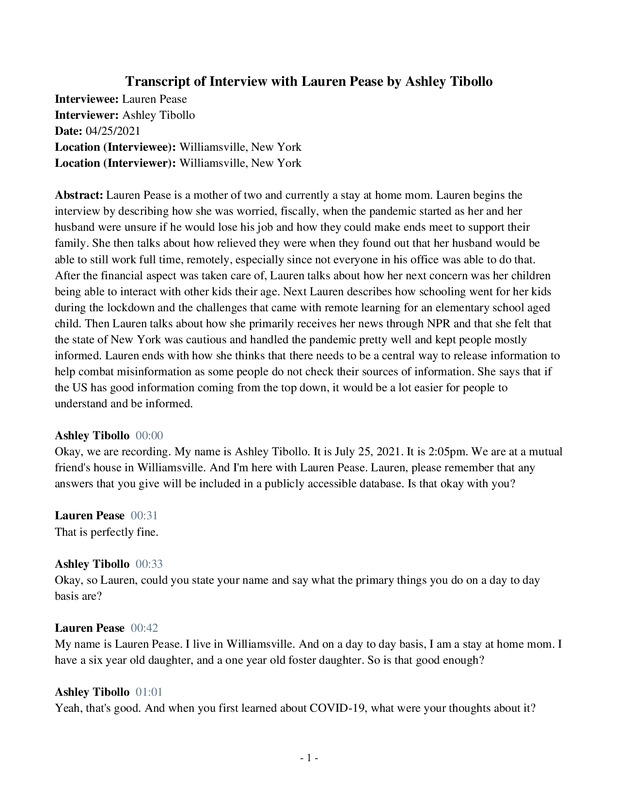 07/25/2021
07/25/2021Lauren Pease Oral History, 2021/07/25
Ashley Tibollo interviewed stay-at-home mom, Lauren Pease about her experience with the Covid-19 pandemic. In this interview, they discuss her experience with the lockdown, her worries about the pandemic, and what life was like during lockdown with her foster child. This interview also touches on political protests, virtual learning and her husband's transition to working from home. -
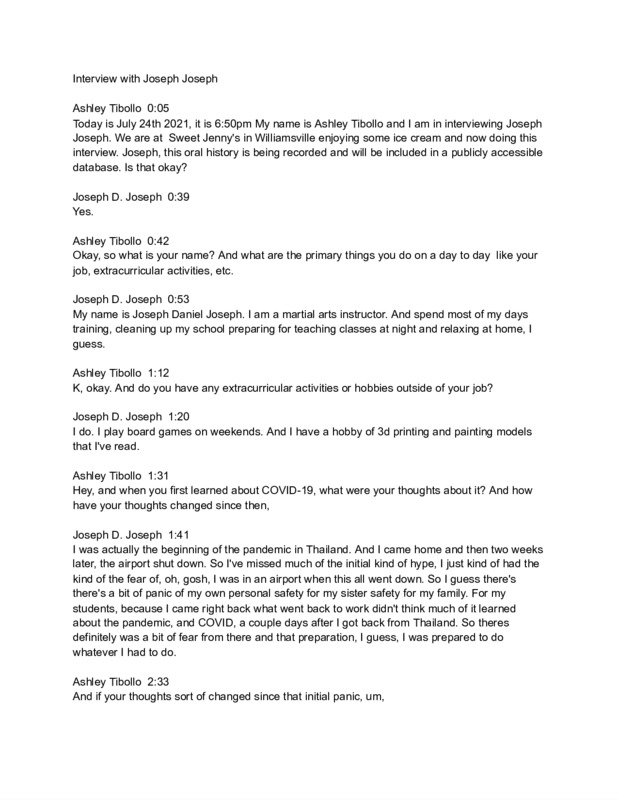 2021-07-24
2021-07-24Joseph D. Joseph, Oral History, July 24, 2021
Ashley Tibollo sits down with Joseph D. Joseph in an ice cream shop in Buffalo, New York to discuss how his life has been affected by the COVID-19 pandemic. In this interview, Joseph describes changes in his day-to-day routine, his life as a martial arts instructor, and changes in his economic status. He also discusses his students and how the pandemic affected them. In the last part of this interview, Joseph discusses his views on politics and what he hopes the future generations will learn about the response to this pandemic. -
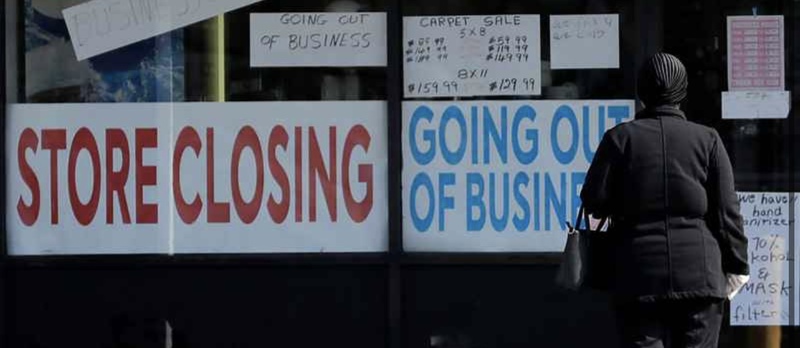 2021-04-09
2021-04-09money
During the pandemic many business had to close down because people were not allowed to go to social gatherings like restaurants. -
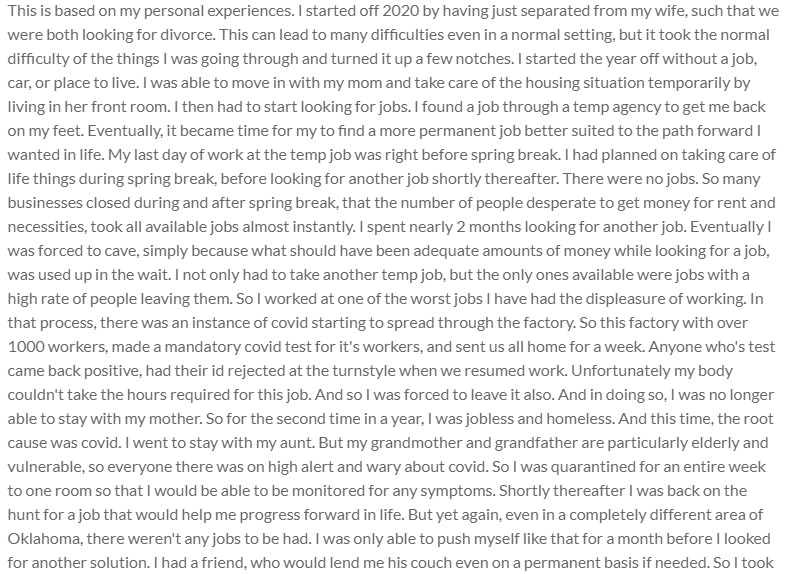 2021-04-23
2021-04-23Difficulty set to hard
This is based on my personal experiences. I started off 2020 by having just separated from my wife, such that we were both looking for divorce. This can lead to many difficulties even in a normal setting, but it took the normal difficulty of the things I was going through and turned it up a few notches. I started the year off without a job, car, or place to live. I was able to move in with my mom and take care of the housing situation temporarily by living in her front room. I then had to start looking for jobs. I found a job through a temp agency to get me back on my feet. Eventually, it became time for my to find a more permanent job better suited to the path forward I wanted in life. My last day of work at the temp job was right before spring break. I had planned on taking care of life things during spring break, before looking for another job shortly thereafter. There were no jobs. So many businesses closed during and after spring break, that the number of people desperate to get money for rent and necessities, took all available jobs almost instantly. I spent nearly 2 months looking for another job. Eventually I was forced to cave, simply because what should have been adequate amounts of money while looking for a job, was used up in the wait. I not only had to take another temp job, but the only ones available were jobs with a high rate of people leaving them. So I worked at one of the worst jobs I have had the displeasure of working. In that process, there was an instance of covid starting to spread through the factory. So this factory with over 1000 workers, made a mandatory covid test for it's workers, and sent us all home for a week. Anyone who's test came back positive, had their id rejected at the turnstyle when we resumed work. Unfortunately my body couldn't take the hours required for this job. And so I was forced to leave it also. And in doing so, I was no longer able to stay with my mother. So for the second time in a year, I was jobless and homeless. And this time, the root cause was covid. I went to stay with my aunt. But my grandmother and grandfather are particularly elderly and vulnerable, so everyone there was on high alert and wary about covid. So I was quarantined for an entire week to one room so that I would be able to be monitored for any symptoms. Shortly thereafter I was back on the hunt for a job that would help me progress forward in life. But yet again, even in a completely different area of Oklahoma, there weren't any jobs to be had. I was only able to push myself like that for a month before I looked for another solution. I had a friend, who would lend me his couch even on a permanent basis if needed. So I took him up on that offer. And I moved from Oklahoma to California. That drive was more or less the most impactful part of covid to me. I had seen the roads get empty on my way to/from work as people had stopped non-essential travel. But Oklahoma didn't have an enforced mask mandate. We could still go to the store, or pay for gas for our car, without being required to wear a mask. Many businesses still had indoor dining even. But in that trip, the realization of the impact of covid, hit me. It was at the only gas station for 20 miles in either direction in the mojave. I walked up to the door to go in and pay for gas. And for the first time that year, I saw a sign saying masks were required to enter. After that, every other location I stopped at was the same. There were no more places I could go without a mask. Covid, was having a real and significant impact on other things in the world than just jobs, and people's financial struggles. After having made it to California, in a particularly populated area with plenty of jobs, I was still unable to find a job for two months, simply because of how the rest of the year had gone for me. Simply by requiring a stable work history, I was no longer able to apply for most jobs. Finally I did get a job. I got one in the food industry. And the impact of covid hit hard there too. After having finished my training, and worked for about a week, the state mandate came that closed both our indoor dining. A month later, outdoor dining followed suit. We weren't allowed to take drinks back to add things we may have forgotten, and instead had to remake them entirely, because of covid safety precautions. I've had my temperature taken every single work day since I started, which was unheard of in times before covid. Twice, we've shut down the store because a partner tested positive for covid, and everyone that worked with them was placed in a mandatory two week quarantine. The impact is so strong, that the company is even providing 2 hours paid time for both doses of the vaccine, as incentive to get vaccinated. It's clear to see, covid has had an incredibly strong impact on life, and turned the difficulty level of many peoples lives up beyond manageable levels. -
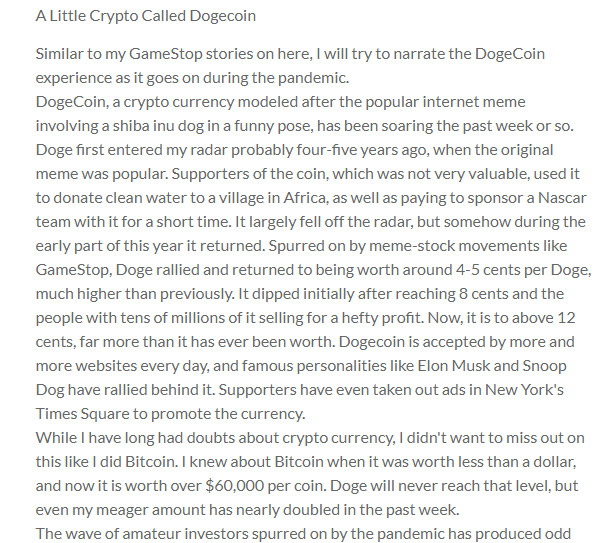 2021-04-15
2021-04-15A Little Crypto Called Dogecoin
Similar to my GameStop stories on here, I will try to narrate the DogeCoin experience as it goes on during the pandemic. DogeCoin, a crypto currency modeled after the popular internet meme involving a shiba inu dog in a funny pose, has been soaring the past week or so. Doge first entered my radar probably four-five years ago, when the original meme was popular. Supporters of the coin, which was not very valuable, used it to donate clean water to a village in Africa, as well as paying to sponsor a Nascar team with it for a short time. It largely fell off the radar, but somehow during the early part of this year it returned. Spurred on by meme-stock movements like GameStop, Doge rallied and returned to being worth around 4-5 cents per Doge, much higher than previously. It dipped initially after reaching 8 cents and the people with tens of millions of it selling for a hefty profit. Now, it is to above 12 cents, far more than it has ever been worth. Dogecoin is accepted by more and more websites every day, and famous personalities like Elon Musk and Snoop Dog have rallied behind it. Supporters have even taken out ads in New York's Times Square to promote the currency. While I have long had doubts about crypto currency, I didn't want to miss out on this like I did Bitcoin. I knew about Bitcoin when it was worth less than a dollar, and now it is worth over $60,000 per coin. Doge will never reach that level, but even my meager amount has nearly doubled in the past week. The wave of amateur investors spurred on by the pandemic has produced odd results, and perhaps the weirdest one is the coin based on a stale internet meme. -
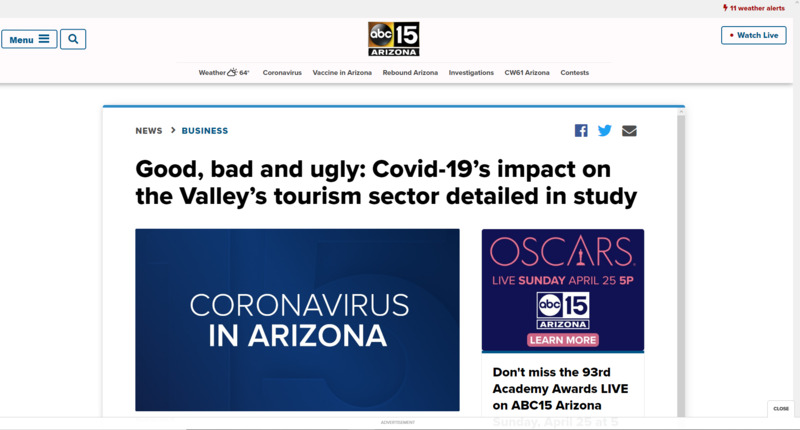 2021-04-13
2021-04-13Good, bad and ugly: Covid-19’s impact on the Valley’s tourism sector detailed in study
Over the last year, Arizona has seen the cancellation of major events due to COVID-19. These cancellations have had a major impact on business and tax revenue. The entertainment, hospitality, and food business have been hit the hardest. -
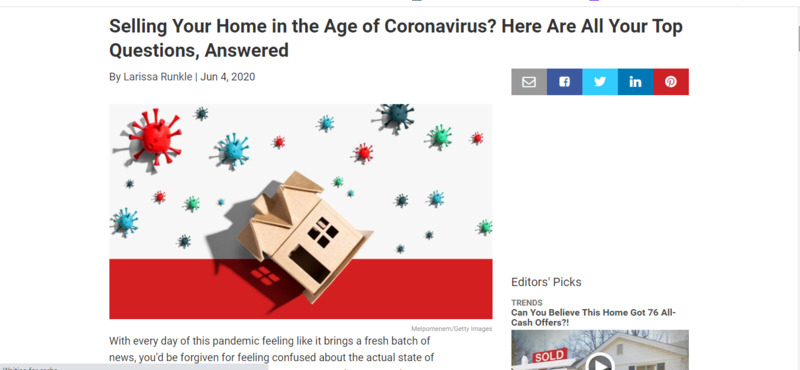 2020-06-04
2020-06-04Selling during COVID
This is an article about selling a house during COVID. I wanted to include this source because one of my interviewees discussed some of the anxiety and stress that they experienced while trying to sell their home in March of 2020. This article provides context for what it is like to sell a home during COVID and how that market has changed. This article is by a realtor and provides advice and comparisons to what it may be like to sell a home during COVID and how that compares to selling during another crisis such as a recession. -
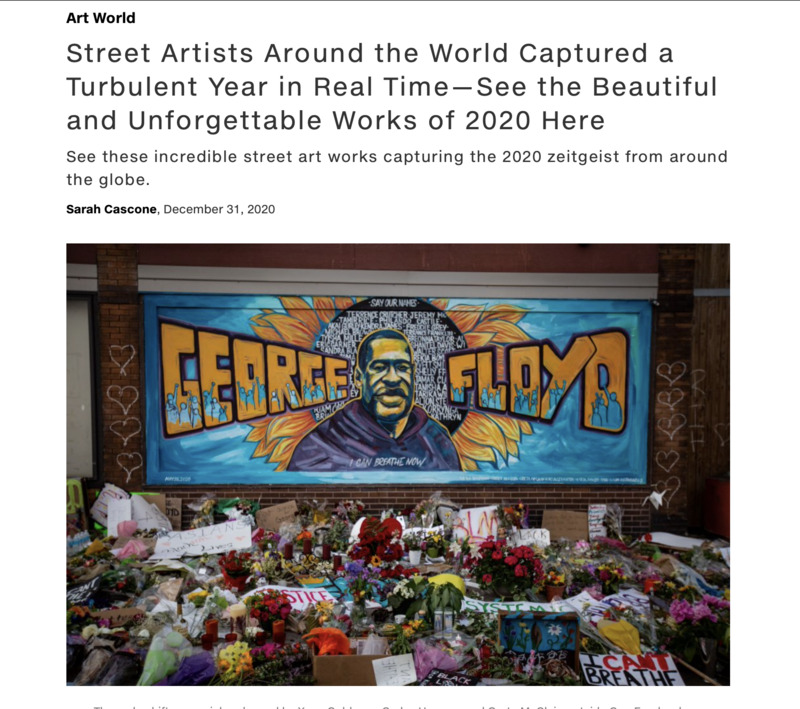 2020-12-31
2020-12-31Pandemic Street Art: Art.net exploring street art around the world
This article captures images of several murals around the world that were tributes to George Floyd, Breonna Taylor, Trayvon Martin, and Ahmaud Arbery, Kobe Bryant, and Chadwick Boseman, to doctors and nurses, "as well as messages of hope, strength, and resilience in the face of the global health crisis and ensuing economic downturn." -
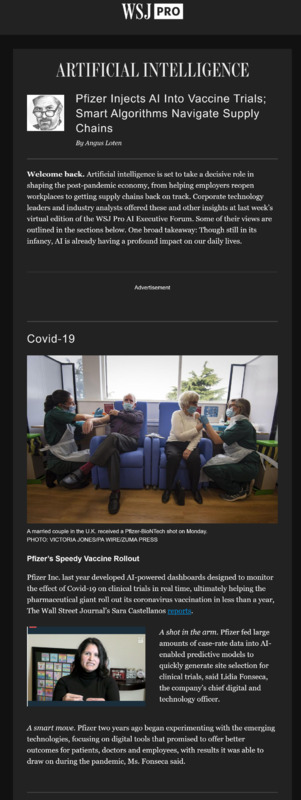 2021-04-06
2021-04-06News Article: Pfizer Injects AI Into Vaccine Trials
This sub-article was the lead item in this week's Wall Street Journal PRO "Artificial Intelligence Weekly" email blast: "By Angus Loten Welcome back. Artificial intelligence is set to take a decisive role in shaping the post-pandemic economy, from helping employers reopen workplaces to getting supply chains back on track. Corporate technology leaders and industry analysts offered these and other insights at last week’s virtual edition of the WSJ Pro AI Executive Forum. Some of their views are outlined in the sections below. One broad takeaway: Though still in its infancy, AI is already having a profound impact on our daily lives. Pfizer’s Speedy Vaccine Rollout Pfizer Inc. last year developed AI-powered dashboards designed to monitor the effect of Covid-19 on clinical trials in real time, ultimately helping the pharmaceutical giant roll out its coronavirus vaccination in less than a year, The Wall Street Journal’s Sara Castellanos reports. A shot in the arm. Pfizer fed large amounts of case-rate data into AI-enabled predictive models to quickly generate site selection for clinical trials, said Lidia Fonseca, the company’s chief digital and technology officer. A smart move. Pfizer two years ago began experimenting with the emerging technologies, focusing on digital tools that promised to offer better outcomes for patients, doctors and employees, with results it was able to draw on during the pandemic, Ms. Fonseca said." -
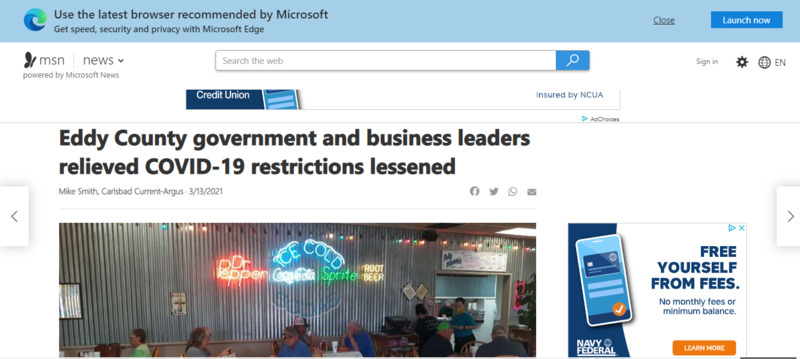 2021-03-13
2021-03-13Eddy County(NM) government and business leaders relieved COVID-19 restrictions lessened
This article discusses recent easing of the New Mexico state government's business restrictions in Eddy County. Businesses have been struggling to remain open and viable for the past year, and these lessened restrictions may help some restauranteurs avoid shuttering their businesses and permanently laying off their employees. The restrictions there, like many states, have specifically targeted the food and beverage industries while mega-stores are seldom impacted. During the previous year, the mid-sized community of Carlsbad lost 2 of its 3 grocery stores to temporary shutdown mandates over the holiday season. This community and its county have been especially hard-hit by economic impacts of President Biden's new Executive Orders on oil and gas production on federal lands, and the pandemic's additional business restrictions have made this a very difficult place to operate and patronize businesses. -
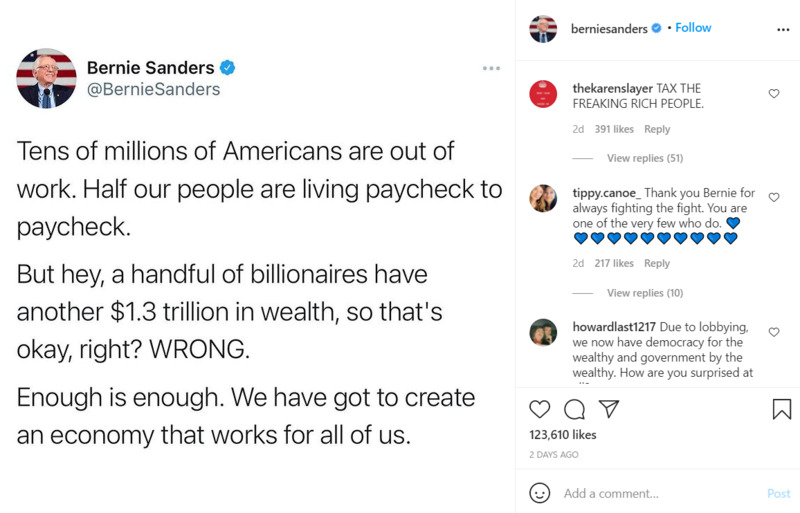 2021
2021Tens of millions of American's are out of work.
Tens of millions of American's are out of work. Half our people are living paycheck to paycheck. -
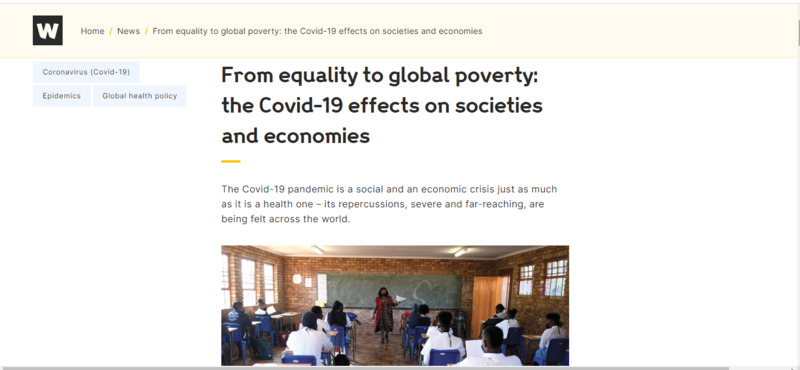 2020-09-22
2020-09-22Unintended Consequences Part II
This article, "From Equality to Global Poverty: How Covid-19 is Affecting Societies and Economies," includes much information. It covers things like the fact that millions of kids may not ever go back to school after this. The article talks about how poverty has increased since the outbreak and how clean energy progress has stalled. The article ends by talking about the investments needed. But all in all there is a lot of important information here on unintended consequences. -
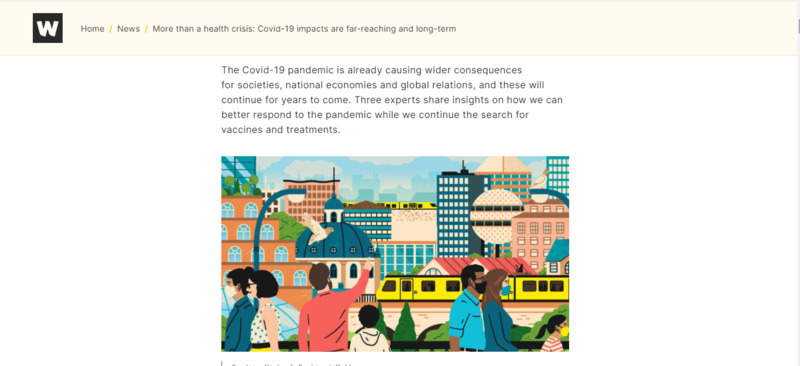 2020-08-26
2020-08-26Unintended Consequences
Devi Sridhar from the London School of Economics covers some things we don't think about when we think about consequences of the pandemic. She compares outbreaks to black holes, as society focuses attention to the pandemic, other priorities are put to the side. Juliet Bedford talks about the vulnerabilities of poorer communities. This interview covers lots of unintended consequences and outcomes of the pandemic. -
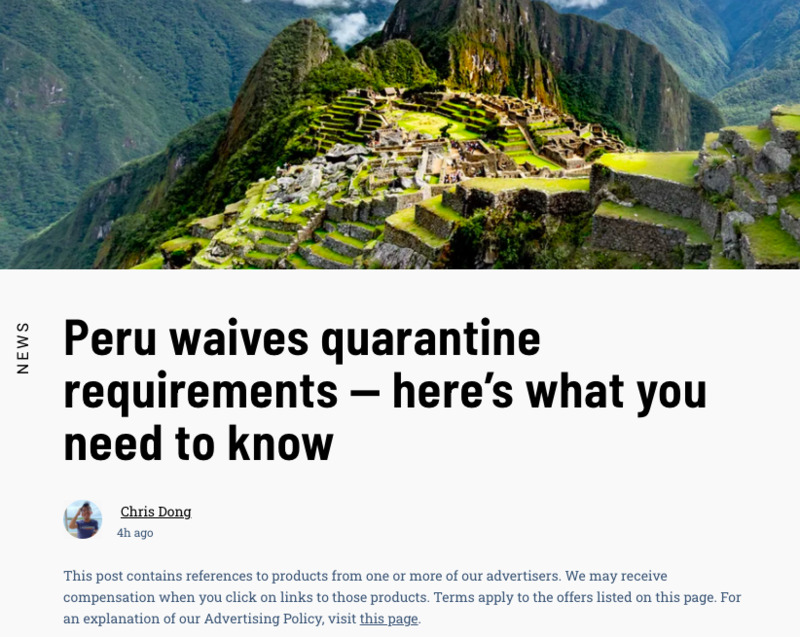 2021-03-18
2021-03-18Peru waves quarantine restrictions
Peru, which continues to suffer from high COVID-19 transmission rates, has lifted quarantine restrictions for international travelers. The Peruvian economy has been undermined by a loss of tourism, its affected restaurants, hotels, guides, transportation, and other facets that depend on foreign capital. The only catch is that you have to have a negative COVID-19 test 72 hours prior to arrival. All of this hints at the importance of money and influence after all-it's mostly wealthier travelers who would have the money to travel for leisure and access to COVID testing. But...what about everyone else on the plane? -
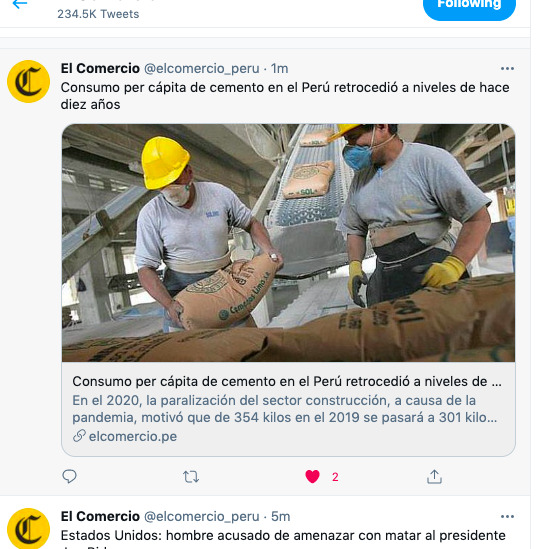 2021-03-16
2021-03-16Consumo per cápita de cemento en el Perú retrocedió a niveles de hace diez años
The cement industry has always been stable, expensive, and increasing. In urban areas, space is precious and construction is costly. This article is very telling of how the pandemic has affected the construction industry and cost of materials -
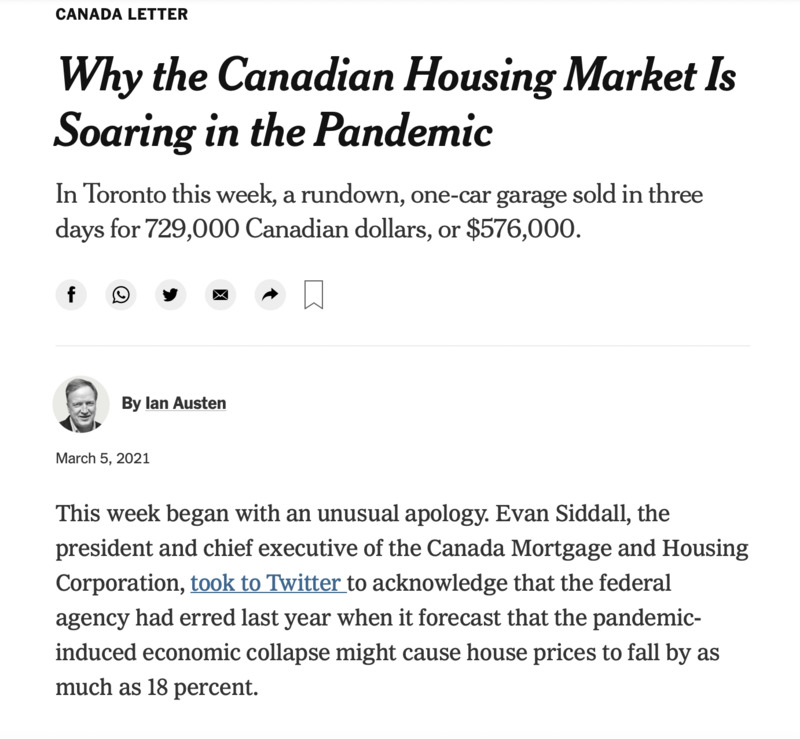 2020-03-05
2020-03-05Why the Canadian Housing Market Is Soaring in the Pandemic
"In Vancouver last month, the benchmark price for detached homes rose by 13.7 percent compared with a year earlier, reaching 1.6 million Canadian dollars. In the Toronto area, the average selling price for detached homes rose by 23.1 percent over the same time period, and a composite price that includes all kinds of housing topped 1 million dollars." -
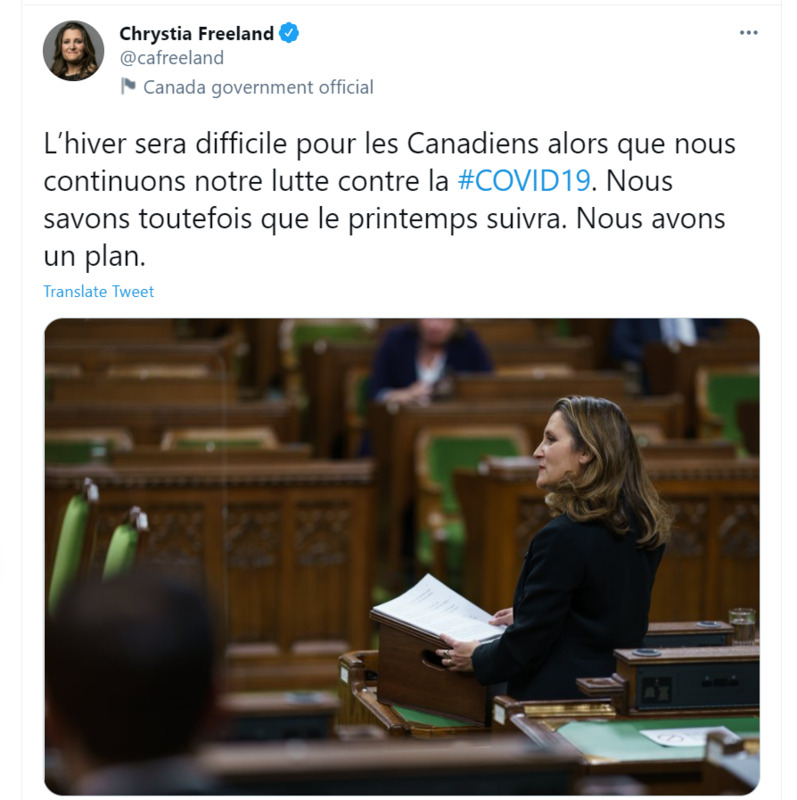 2020-11-30
2020-11-30L’hiver sera difficile
This hopeful message from Canada's Finance Minister, Chrystia Freeland, says that Canadians have a plan to get through the winter, and then will move on to economic recovery. -
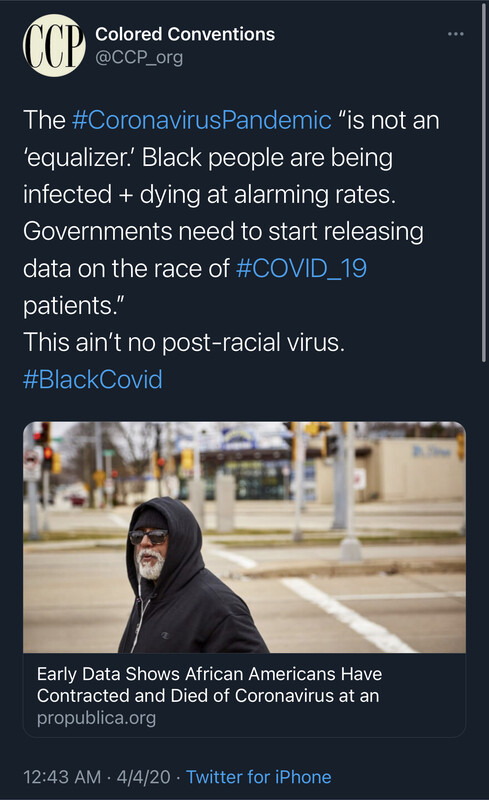 2021-02-22
2021-02-22Black history and the COVID-19 pandemic
This post shared on social media talks about how environmental, economic and political factors play key roles in the pandemic spread. Interestingly this article talks about the county Milwaukee, in which simply being black puts the life expectency down by 14 years. Dr. Camara Jones states in this article that "COVID is just unmasking the deep disinvestment in our communities, the historical injustices and the impact of residential segregation,”. As stated in the article, when mojority of black people in Milwaukee county went to near by hospitals when they felt they were in contact with the virus, they were sent home and died before the confirmation of the test came back. This shows how the pandemic is effecting black people. -
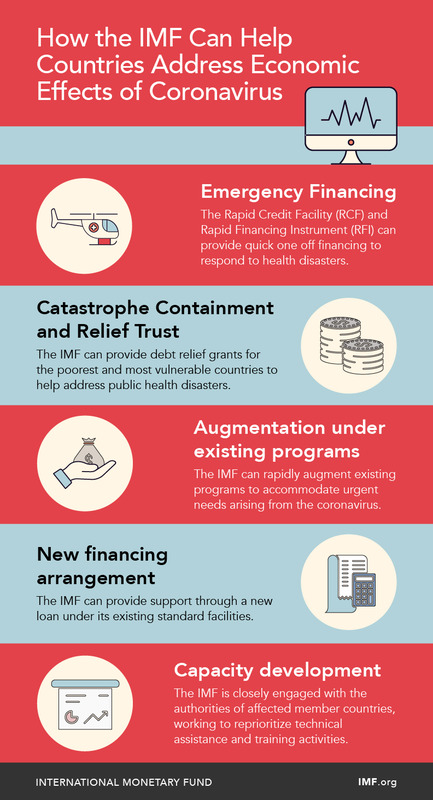 2020-06-01
2020-06-01IMF COVID Image
Covid finance options by IMF -
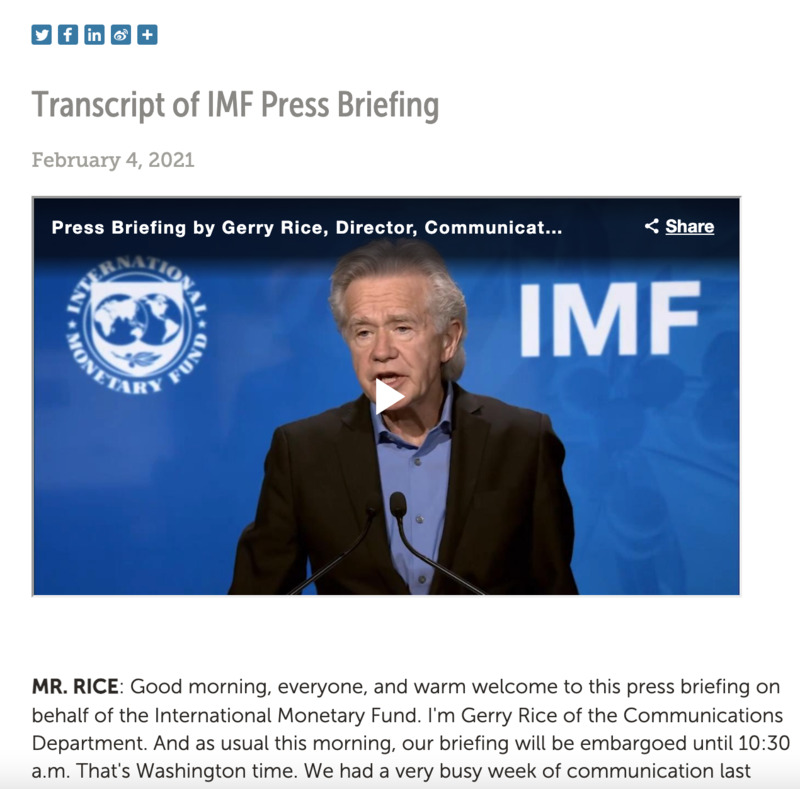 2021-02-04
2021-02-04IMF Myanmar Response
Questions Reporter Asked IMF Gerry Rice [ Director, Communications Department, IMF ] concerning Myanmar COVID Relief Money QUESTIONER: In terms of Myanmar, recent developments in Myanmar. It seems that quite recently, just before the coup, that the IMF had given some $350 million and dedicated it toward it. I'm wondering what are your thoughts? First of all, what are the IMF's thoughts, obviously, on the coup? But also generally, how did the IMF react when there's a change of government in this way right after they've given money? Is there any -- how can you assure that the money goes, you know, for the intended purposes? That it doesn't actually support a now more military government? That's my question for today. MR. RICE: Thank you very much for that. We are, of course, very concerned about the impact of recent events and what they could have on the people of Myanmar, and we're watching it very closely, of course, like the rest of the world. Just to remind that, of course, Myanmar faced large economic and social costs as a result of the pandemic, and the IMF resources, our support was to help the people of Myanmar to meet these urgent humanitarian needs. That was the whole purpose. Again, just to set in context, the approval of this supports was back in January by our board and followed all standard procures for this kind of emergency financing. The same as we have done for another 84 countries in this crisis, and standard safeguards in place regarding the resources, including the repayment schedule. And as I think you know, the IMF's record over 75 years on repayment and safeguarding of IMF resources is very clear. In terms of the status of our engagement, we have had no communication at this point with the new regime, and that's about as much as I have at the moment on Myanmar. QUESTIONER: So I had a question to follow up on Myanmar. I'm just wondering, on what happens [next]? Do you have to wait until whatever government emerges to reach out to the IMF to see if there's going to be even a relationship with the IMF going forward? And, you know, some people that I've spoken with are suggesting that well, this is kind of a pitfall of these rapid disbursing instruments that have been used. The money goes out very quickly all at once with no or very few conditions attached to it. Is there any thought to changing that at this stage and, you know, just wondering what next steps are on this? Is it just waiting till the smoke clears to decide how we engage? Also, the military generals that were appointed, a new central bank chief who was the same guy that ran the central bank when they were in power. Is there some concern that the central bank will lose its independence? MR. RICE: Just on your last point, of course, the independence of central banks is one of the fundamental principles that the IMF believes in and supports so, you know, just to make that very clear. On your other points, clearly the situation is unfolding. In terms of recognition of the government as in other cases, we are guided by the international community, guided by the membership in terms of recognition of the government. So again, the situation is unfolding there but that's what guides us in terms of our relationship with countries. You know, what I'd say on how the resources that we approved back in January how they are used, clearly again, as I said, these resources were for a clear purpose, the crisis, the pandemic, the helping with the humanitarian needs there. And, of course, it would be in the interest of the government and certainly the people of Myanmar that those funds are indeed used accordingly. Under the arrangement that was agreed with the previous former government, there was indeed safeguards regarding how the funds would be used as is the case with all of our emergency financing. I've talked about it here before. That included audit and, you know, transparency of how the resources are used. And again, this is true for all of the emergency financing. So while there are few conditions, as you rightly say, there are safeguard provisions and it would be our expectation that, you know, regardless of the future that these commitments would be maintained. Because those resources need to go to support the people and especially vulnerable groups. So you asked finally where we’re thinking of changing. You know, again, we've been using these emergency financing instruments in 85 countries so far. I think they have been a huge help and assistance in the crisis especially to the poorest countries, to low income countries. And I think one of the reasons that they've been so effective and we've been able to get the support so quickly is the, you know, the conditions are relatively few. However, and again I stress, the safeguards and the governance of those resources is something that we give high priority to and each one of those has a set of safeguards. Whether it's audit or publishing of procurement contracts, you know, there's a whole series of governance related provisions that we have attached to these loans. These are very important and we're confident that the resources will be well used and for the purpose that they were intended in these emergency financing loans. -
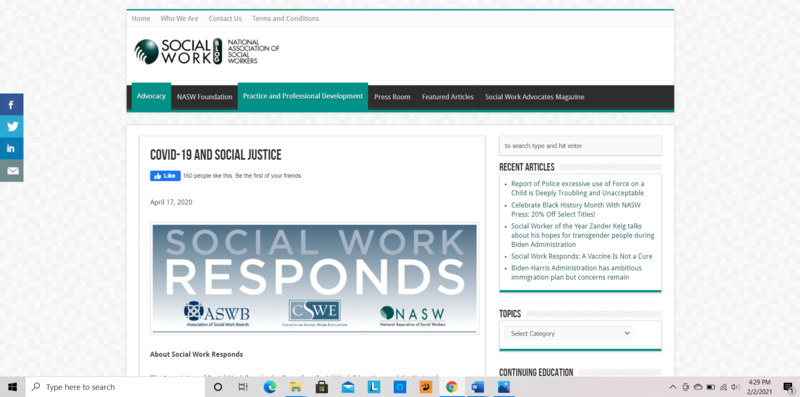 2020-04-17
2020-04-17COVID-19 and Social Justice
From the article: The COVID-19 pandemic is a health and mental health crisis, to be sure. But it is also a crisis of social injustice, inequitably affecting vulnerable and marginalized populations that include, among others, individuals who earn low incomes, or are incarcerated, homeless, in foster care, over 65 (especially those in long-term care facilities), people of color, or undocumented. Social work practitioners, educators, and policy makers are working to address the needs of these populations despite the unpredictability of the virus’s secondary impact on systems. -
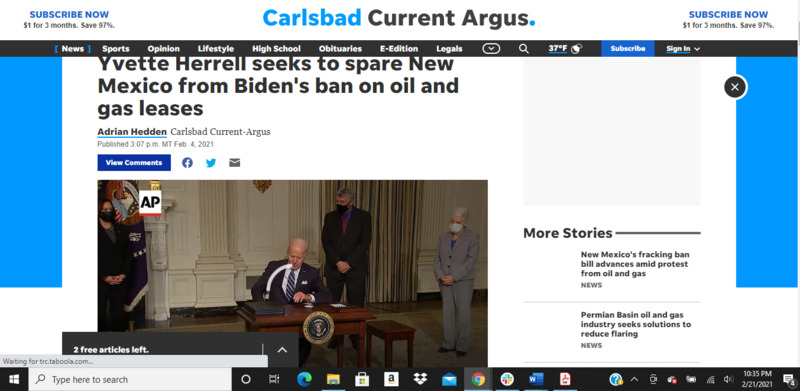 2021-02-04
2021-02-04US Rep. Yvette Harrell seeks to spare NM from Biden's ban on oil and gas leases
This article from Carlsbad Current Argus reporter Adrian Hedden explains NM District 2 Congressional Representative Harrell's efforts to preserve the oil-and-gas driven economy in New Mexico. The oil and gas lease referenced here applies to federal lands, and the ban of new lease issuance impacts existing operations. Much of southeastern New Mexico is federally owned, while nearby Texas is predominantly private land. The effect of this ban, if successful, would merely drive operations a few miles across the state line without largely impacting production from within the Permian Basin; it will, however, destroy the New Mexico economy, approximately 40% of which depends on oil and gas operations within the state. This article and topic are important to me because of my familial ties to New Mexico, but also because it demonstrates the unintended and myopic objectives set forth in this particular executive order. The economic impact of this ban would further exacerbate community and statewide problems related to COVID-19 as homeless has recently spiked in that region, and the disappearing tax base has further inhibited county and state programs and operations. -
2021-01-26
Statistics of Covid-19
Currently there are about 25,152,433 confirmed cases of Covid-19. And sadly 419,827 have died due to Covid-19. In California alone there are 3,136,158 cases with 7,937 cases per 100 thousand. There are also a couple new strains of Covid-19 that either spread faster or are more serious. Luckily, there are a few vaccines that are being distributed now. Covid-19 has caused a lot of trouble to many people, and lifestyles have and will change due to Covid-19. -
2021-01-26
The Rules of Covid
During Covid there are harsh rules that have been set in place. Some of those include staying home, social distancing when you are out in public, shutting down stores, wearing masks, not congregating with friends, and the list continues on and on. I think that these rules are all important, but in some cases don’t need to be followed. For example, small businesses aren’t allowed to be open due to strict closing guidelines. This means that a lot of stores are going out of business, and are losing money, which does not help our economy. I also think that when you are outside, in a large space, you should not have to wear a mask. If you are 6 feet away from others, then you should not be required to wear a facial covering. All in all, these rules have kept a lot of people safe, but I think that if you have the knowledge to make your own decisions regarding these topics, that you should do that and follow your own personal rules, that keep YOU safe. -
2021-01-12
COVID-19 one year ago and now
When Covid was new, no one really knew much about it. When it came out they were a lot of rumors talking about how dangerous the virus was. Also talking about how the virus was created. The biggest rumor was that a man in china decided that he would eat a bat and because of that he got covid from eating the bat, then he spread it to a lot of people, this is how it was said covid was spread all around the world. When is started I didn't really think about it that much, I felt like people were over exaggerating it (and I still do). I honestly wasn't sure if the virus was even real and it may have been a hoax. Now that we have had covid for about a year these are my thoughts about it. I am honestly not sure how the virus was created, people say it was still from china, other people say it was created in a lab by the government so it's hard to say what is truth and what is false. I understand that for people that have underlying conditions this virus can be deadly but I honestly think and flu or cold can be deadly in various levels. I do think it is good to wear a mask and to say social distance for peoples protections but I do feel like shutting down economy was something that wasn't needed as it has closed down many restaurants and stores, etc. Those are my thoughts about covid one year ago and my thoughts about covid now. -
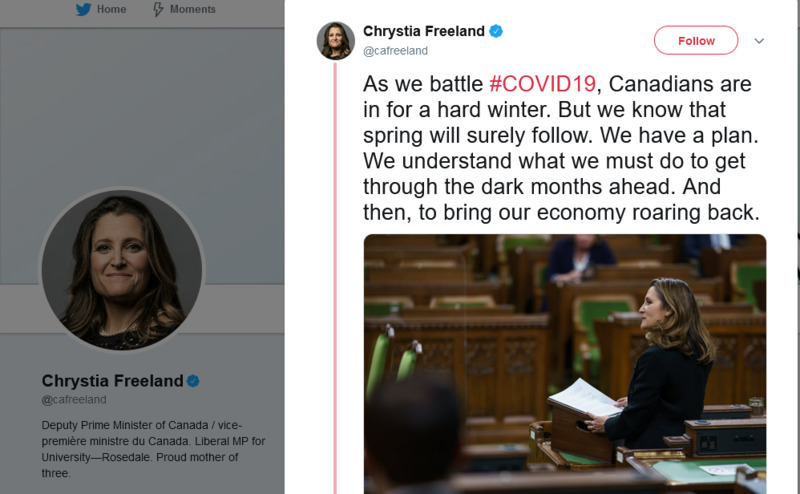 2020-11-30
2020-11-30Winter, then Recovery
This hopeful message from Canada's Finance Minister, Chrystia Freeland, says that Canadians have a plan to get through the winter, and then will move on to economic recovery. -
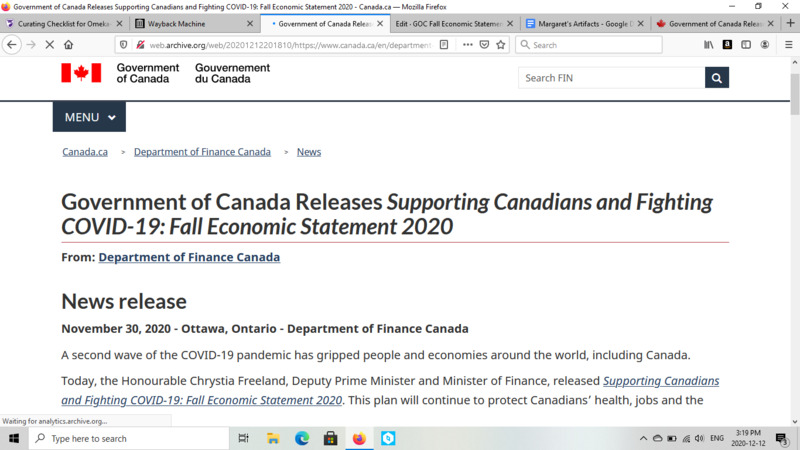 2020-11-30
2020-11-30GOC Fall Economic Statement
The Government of Canada's Fall Economic Statement. -
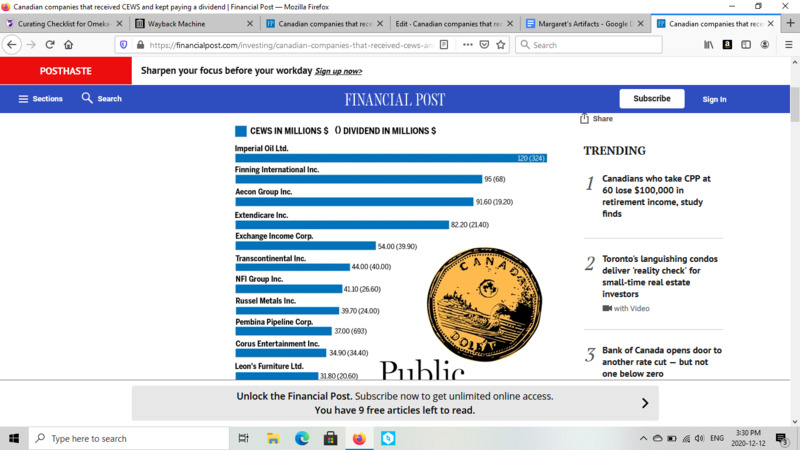 2020-12-07
2020-12-07Canadian companies that received CEWS and kept paying a dividend
This graph shows Canadian corporations who received CEWS but continued to pay dividends to their shareholders.
